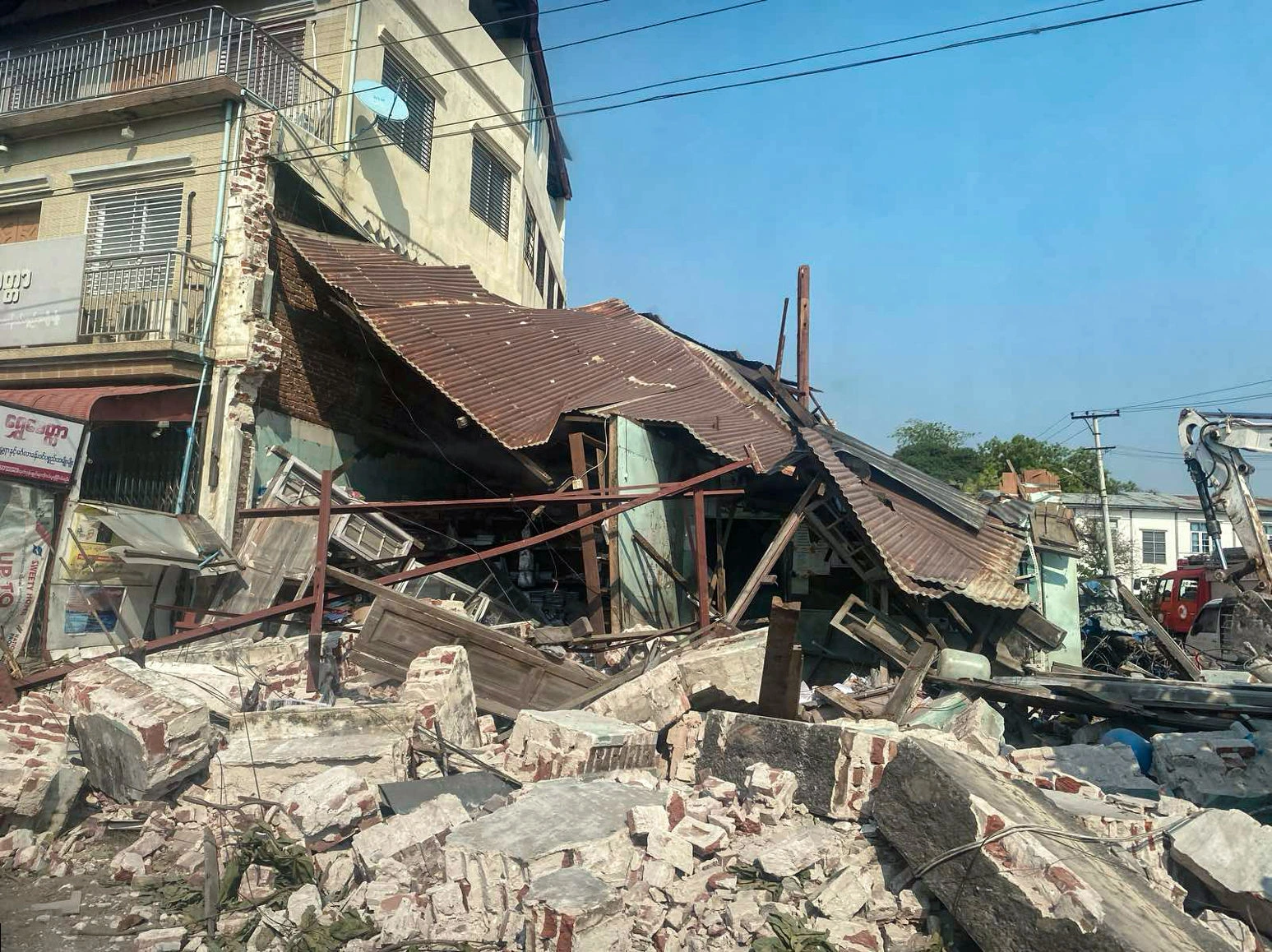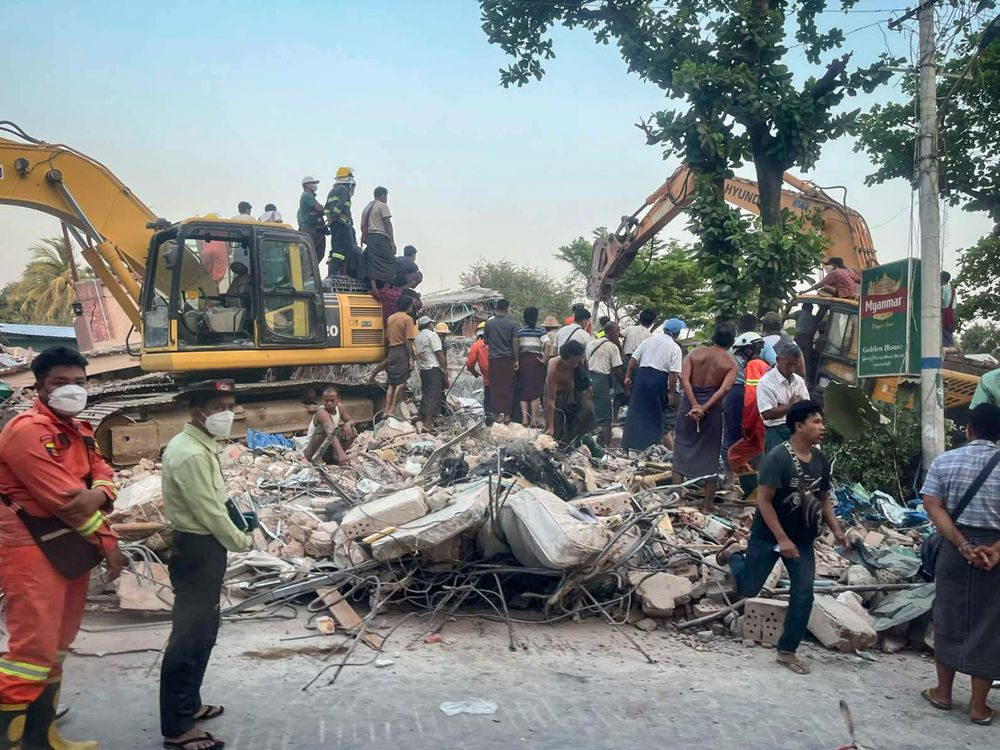Given the scale and intensity of the earthquake, the impact on people could be devastating, particularly for those who require immediate life-saving assistance due to trauma injuries. MSF teams are ready to respond and work with different parties once authorities facilitate swift and unhindered access for teams to do assessments and provide medical care. (Update on 31 March: Two MSF emergency teams comprising medical as well as water and sanitation specialists are already in the Mandalay area to carry out needs assessment and get ready for further response.)
MSF teams working in Myanmar and Thailand are safe and accounted for. Federica Franco, head of mission of MSF in Myanmar stated:
While we are not in the areas that have been most impacted by the earthquake, all of our teams in the country really felt it, and all of our offices were also evacuated. It was a particularly long [earthquake], to be honest, which is also why it was scary for a lot of us. Thankfully, all of our staff are safe, but we are deeply concerned about the people in the affected areas. At this time, it's quite hard to fully grasp the extent of the damage.
The latest official reports say that at least 694 died and 1,670 were injured. "At this time, it's quite hard to fully grasp the extent of the damage," added Franco. "We're expecting these numbers to rise."
The disaster response faces multiple challenges - there are significant communication blackouts in some of the hardest hit areas, and this is due to the ongoing conflict; reaching the people physically who are urgently in need of help also becomes incredibly difficult. "Key roads have been damaged, and that includes the Express Highway that goes from Yangon to Naypyidaw and Mandalay. We had a team on the road earlier today (28 Mar), but they had to come back. Some of the airports are also closed," said Franco.
"MSF teams are ready to intervene, and our emergency response planning is underway. The priority for us at the moment is to deploy assessment teams, and ideally, an emergency trauma care team. To do so, however, we need access, and time is particularly critical in situations like these, especially for those who need immediate care. MSF has made it very clear that we are willing to engage with all stakeholders, of course, to make this happen."
Our medical humanitarian staff in Myanmar and neighbouring countries have the capacity to respond at scale to the needs of affected communities as soon as unhindered access is granted to the teams .
In addition to people who require immediate lifesaving trauma care, MSF is also concerned about those who will be vulnerable as a result of loss of shelter, loss of access to general healthcare, as well as loss of access to safe drinking water which is crucial to control the possible spread of waterborne diseases.
The ability to deploy assessment teams and, ideally, surgical capacity, are critical in the first hours and days after any earthquake if we hope to respond with life and limb-saving surgical care for people injured.
The military coup in Myanmar in February 2021 has disrupted the country's public health system. MSF has been providing HIV, tuberculosis and hepatitis C care, as well as basic healthcare along with reproductive and sexual healthcare services, and respond to medical emergencies.
Despite restrictions on humanitarian access to conflict-affected areas, we have mobile teams based in Sittwe and Maungdaw in Rakhine state, who offer basic healthcare. They also arrange emergency referrals for patients from all communities, including those forcibly detained in camps.
In 2023, MSF has conducted 181,600 outpatient consultations, 3,340 individual mental health consultations, assisted 1,600 people to receive HIV antiretroviral treatment and helped 190 people to start on treatment for MDR-TB.



